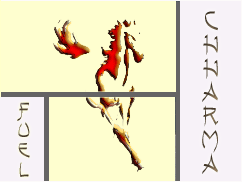A review of the literature, published in 1999, found a total of four double-blind placebo-controlled studies on beta-sitosterol for BPH, enrolling a total of 519 men.
All but one of these studies found significant benefits in both perceived symptoms and objective measurements, such as urine flow rate.
The largest study followed 200 men with BPH for a period of 6 months. After the trial was completed, many of the participants were followed for an additional year, during which the benefits continued.Similar results were seen in a 6-month double-blind trial of 177 individuals.
Beta-sitosterol binds to prostate tissue and affects the metabolism of prostaglandins, substances found in the body that affect pain and inflammation. However, it is not clear whether this is the correct explanation for how beta-sitosterol might help in BPH.
Wilt TJ, MacDonald R, Ishani A. Beta-sitosterol for the treatment of benign prostatic hyperplasia: a systematic review. BJU Int. 1999;83:976–983.
Klippel KF, Hiltl DM, Schipp B. A multicentric, placebo-controlled, double-blind clinical trial of beta-sitosterol (phytosterol) for the treatment of benign prostatic hyperplasia. German BPH-Phyto Study group. Br J Urol. 1997;80:427–432.
Kadow C, Abrams PH. A double-blind trial of the effect of beta-sitosteryl glucoside (WA184) in the treatment of benign prostatic hyperplasia. Eur Urol. 1986;12:187–189.
Berges RR, Windeler J, Trampisch HJ, et al. Randomised, placebo-controlled, double-blind clinical trial of beta-sitosterol in patients with benign prostatic hyperplasia. Beta-sitosterol Study Group. Lancet. 1995;345:1529-1532.
Berges RR, Windeler J, Trampisch HJ, et al. Randomised, placebo-controlled, double-blind clinical trial of beta-sitosterol in patients with benign prostatic hyperplasia. Beta-sitosterol Study Group. Lancet. 1995;345:1529–1532.
Berges RR, Kassen A, Senge T. Treatment of symptomatic benign prostatic hyperplasia with beta-sitosterol: an 18-month follow-up. BJU Int. 2000;85:842–846.
Klippel KF, Hiltl DM, Schipp B. A multicentric, placebo-controlled, double-blind clinical trial of beta-sitosterol (phytosterol) for the treatment of benign prostatic hyperplasia. German BPH-Phyto Study group. Br J Urol. 1997;80:427–432
Schulz V, Hansel R, Tyler VE. Rational Phytotherapy: A Physicians' Guide to Herbal Medicine. 3rd ed. Berlin, Germany: Springer-Verlag; 1998:231.
|
